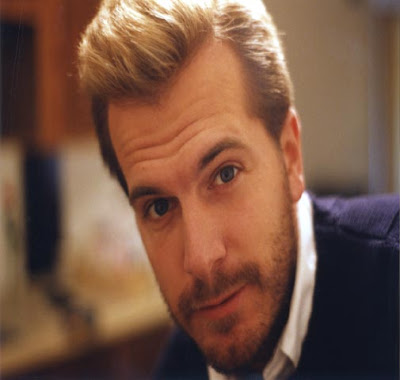Good cop, God cop.
About this Pope Benedict...
Predictably, the selection of Pope Benedict brought a chorus of dismay from the anti-Christians, the anti-Catholics and t
 he fallen-away Catholics in the cheap seats.
he fallen-away Catholics in the cheap seats.Some of the pontificating was merely morose; some genuinely venomous. It seems the former Cardinal Joseph Ratzinger does have a bit of a history with the Church's enemies on the lunatic fringe.
In his role as Prefect of the Congregation for the Propagation of the Faith, he was the one who laid down church law when such law was broken or challenged. This, of course, made him the villain for those who prefer a lot of wiggle room and gray area in such trivial matters as distinguishing between right and wrong.
Absurd, really.
That's like blaming the District Attorney for putting criminals in jail, or blaming the highway patrolman who pulls you over. Ultimately, neither the D.A. nor the cop makes the laws.
From the other side, comes strong endorsement for Pope Benedict. Back in the '80s and '90s, there was jubulation among faithful Catholics who found great relief when Cardinal Ratzinger reined in grave abuses, as well as bizarre attempts to connect Catholicism with Marxism, Socialism or New Age mysticism. For them, the elevation of Pope Benedict is vindication, and a new blow against those who would destroy the church from within.
While gloating would be truly inappropriate, it seems they are entitled to some exuberance.
Gerard Baker at the UK’s Times Online opined deliciously with his headline "Shock! New Pope a Catholic" and wondered if perhaps the likes of the New York Times and the BBC were expecting the cardinals to elect Boomtown Rat Bob Geldof instead.
But Peggy Noonan, clearly a fan, delivers a quietly joyful endorsement that says it all without potentially unpleasant pedantry.
without potentially unpleasant pedantry.
In her column in the Wall Street Journal, she sees, not a cop, but a loving father, the sort of a father resented by rebellious children, but appreciated by the grownups those children would be blessed to become.
That's like blaming the District Attorney for putting criminals in jail, or blaming the highway patrolman who pulls you over. Ultimately, neither the D.A. nor the cop makes the laws.
From the other side, comes strong endorsement for Pope Benedict. Back in the '80s and '90s, there was jubulation among faithful Catholics who found great relief when Cardinal Ratzinger reined in grave abuses, as well as bizarre attempts to connect Catholicism with Marxism, Socialism or New Age mysticism. For them, the elevation of Pope Benedict is vindication, and a new blow against those who would destroy the church from within.
While gloating would be truly inappropriate, it seems they are entitled to some exuberance.
Gerard Baker at the UK’s Times Online opined deliciously with his headline "Shock! New Pope a Catholic" and wondered if perhaps the likes of the New York Times and the BBC were expecting the cardinals to elect Boomtown Rat Bob Geldof instead.
But Peggy Noonan, clearly a fan, delivers a quietly joyful endorsement that says it all
 without potentially unpleasant pedantry.
without potentially unpleasant pedantry.In her column in the Wall Street Journal, she sees, not a cop, but a loving father, the sort of a father resented by rebellious children, but appreciated by the grownups those children would be blessed to become.
We want a spiritual father. We want someone who stands for what is difficult and right, what is impossible but true. Being human, we don't always or necessarily want to live by the truth or be governed by it. But we are grateful when someone stands for it. We want him to be standing up there on the balcony. We want to aspire to it, reach to it, point to it and know that it is there.
Because we can actually tell what's true.
We can just somehow tell.
...Read him--he is a writer, a natural communicator of and thinker upon challenging ideas. Listen to him. Consult your internal compass as you listen, and see if it isn't pointing true north. Look at what he said at the beginning of the papal conclave: It is our special responsibility at this time to be mature, to believe as adults believe. "Being an 'adult' means having a faith which does not follow the waves of today's fashions or the latest novelties." Being an adult is loving what is true and standing with it.
Benedict XVI has just begun his service as Pope. Nobody is expecting the globetrotting zip and charisma of his predecessor. He's 20 years older than Pope John Paul II was when he took the job. Sorry, no rock star pope this time. Fortunately, he's not some indulgent buddy either. Instead the flock will be served, perhaps well served, by a loving father with a firm hand.
Prodigal children can, of course, be expected to reject such a father. But those fortunate enough to survive whatever folly to which they subject themselves will find that such a father keeps the door open and the light on for whenever they wise up and want to find their way home.
Prodigal children can, of course, be expected to reject such a father. But those fortunate enough to survive whatever folly to which they subject themselves will find that such a father keeps the door open and the light on for whenever they wise up and want to find their way home.
April 28, 2005

.gif)


